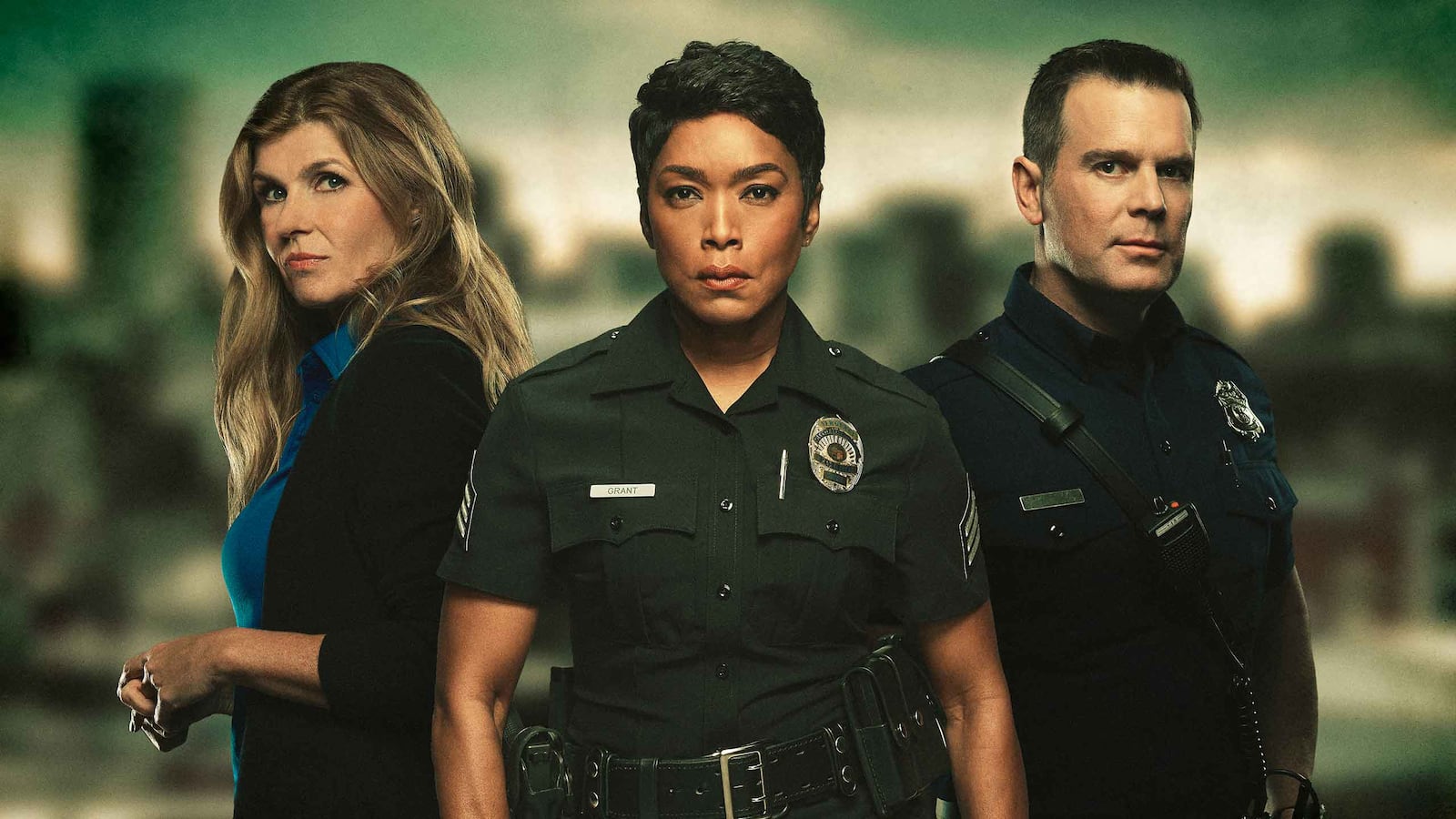Throughout his career as a TV creator, Ryan Murphy has revived the concept of a TV musical, turned the O.J. Simpson saga into an Emmy Award-winning drama, adapted one of theater’s most important plays about the HIV and AIDS movement, dabbled in horror, witchcraft, voodoo, insane asylums, haunted houses, Lady Gaga orgies, and translated Trump’s election into a cultural allegory involving clowns and cults. What he’s never done, however, is the broadcast TV standard: the procedural drama.
The result, 9-1-1, a drama centering around the first responders to emergencies, is as outrageous as you’d expect from a Murphy production: Babies flushed down toilets! Snakes getting beheaded! Connie Britton with bad hair! But it’s also depressingly derivative and middle-of-the-road. The emergency call should really go out to the writers’ room that tests the impressive talent Murphy assembles here—Britton, Peter Krause, Angela Bassett, and Aisha Hinds among them—with every cliché in the handbook.
Britton plays L.A. 9-1-1 call operator Abby Clark, given the “What’s your emergency?” opening line and the expository voice-over: This is a show about all the emergencies we encounter in life.
There are the personal ones. Abby is single and caring for her mother, who has Alzheimer’s. She dispatches to firefighter Bobby Nash (Krause), a recovering alcoholic, and police officer Athena Grant (Bassett), a tough-as-nails cop who is grappling with—in a real doozy of a plot—the news that her husband is gay.
Then there are the emergencies you can’t prepare for. Abby is the most competent call operator you’ll ever meet, talking a scared mom through CPR for her drowning son, or a nine-year-old through a home invasion. Bobby doesn’t bat an eye when his afternoon involves extricating a newborn from plumbing pipes in the wall after a teen mom flushed her down the toilet, or prying a snake off the neck of a suffocating reptile fetishist. And Athena is a badass, especially when chasing down the robber who terrorizes the aforementioned little girl, or giving a stern talking-to to a hothead young firefighter who disrespects her authority.
“Is it weird that I feel more comfortable dealing with these kinds of emergencies than the ones I have to go through when I leave and go home?” Abby says at one point, sort of boiling down the thesis of the show to one line of hamfisted dialogue.
That dialogue’s the thing, too. For every item in Column A selling this show as a refreshing take on the procedural, there’s a toxic one in Column B urging you to change the channel. It should come as no surprise given the cast that the acting here is top-notch, elevating some truly cringe-worthy writing. Bassett totally detonates an otherwise bomb of a scene in which she confronts her husband for telling their kids about his coming out, while Britton’s trademark earnest warmth makes her stock wallflower character really bloom.
As you can gather, the emergencies these characters respond to are outrageous. Delightfully so, actually. That’s 9-1-1’s greatest asset and the true Murphy signature on the staid procedural drama. Scenes and emergencies whiz by at breakneck speed with little preciousness, like a fire truck careening through the streets of Los Angeles, making for an invigorating viewing experience that manages to keep you rapt the entire time.
The pacing is especially smart, as its speed allows the show to accelerate right past your eye roll when characters start waxing poetic about “how lucky we are to do what we do” and demurring credit for who “the real hero” is, and on to the next, tense emergency. A whiplash pace is a clever bandage for the woefully hackneyed dialogue.
Still, despite the fact that so much of the narrative resembles something you might have seen on any network procedural throughout all of eternity, there is something different going on here. It’s compelling to see Murphy’s quirkiness work in this space. There is something breezily watchable about him doing TV comfort food, rather than the usual genre fusion that puts off the picky eaters among us.
As such, we expect the show to be decently popular, and more palatable to a mainstream audience than Murphy’s more flamboyant fare. While predicting ratings is a fool’s errand in today’s TV landscape, 9-1-1 is tapping into something very zeitgeisty, and doing it smartly through a universal entry point.
With the world falling apart around us, we often desire to see acts of heroism and to be reassured, at least through scripted TV, that things might just be OK. Think of it as escapism as self-preservation. There’s a smothering sense in the ether right now that we all might need rescuing; may we have Connie Britton on the line and Angela Bassett in the cruiser when we do. And everyone understands how 9-1-1 calls work. There’s no world-building to be done here. Viewers can just jump right in.
There’s no denying that 9-1-1 has a pulse. But the triage needed to resuscitate it from merely enjoyable to excellent is far from done.






